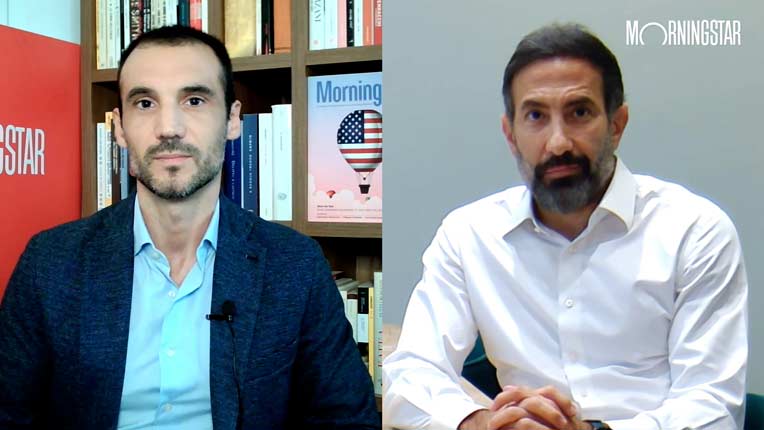
The Fundsmith Emerging Equities Trust (FEET) is set for a shake-up as manager Michael O’Brien says “2019 was not a vintage year for the fund”.
The trust, launched in 2014 by veteran investor Terry Smith, saw its net asset value fall by 0.5% last year while the MSCI Emerging Markets Index, climbed 13.9%. The trust’s share price was down 7.4%. Since inception, the trust has returned 22% compared with 55% from the index.
Speaking to investors at the trust’s Annual General Meeting, O’Brien confirmed he would be sticking with the Fundsmith mantra of “buy good companies, don’t overpay, do nothing”, but said the team had “taken a long, hard look at the fund” to find areas for improvement.
The trust’s geographic focus has been a main reason for the divergence in performance from the index, with 41.4% of the portfolio invested in India compared to just 8.5% of the MSCI Emerging Markets index. The trust has just 15.5% of assets in China, which makes up 33.6% of the index, and no exposure to South Korea and Taiwan.
New Managers at the Trust
Smith stepped back from the running of FEET in May 2019, appointing as his replacements Michael O’Brien and Sandip Patodia, who have worked on the trust’s team since inception. At the same time, the trust’s fee was reduced from 1.25% to 1%. Smith said at the time he would continue to provide “advice and support” and that the changes would “help to deliver the long-term outperformance that we seek”.
Speaking at this week’s AGM, O’Brien said: “Following the manager change last year, the new team has identified probably four themes going forward where we hope we can improve the performance of the fund.”
These include a move to lower the macro and political risk of the fund by reducing its exposure to frontier markets. O’Brien has already sold out of Ghana and Pakistan and reduced its holdings in Nigeria from three companies to one. Overall frontier markets exposure has fallen from 12% at the end of 2018 to 9% at the end of 2019.
And while the Fundsmith philosophy has typically steered the firm’s funds towards big consumer companies, O’Brien said he would look to increase the sector diversity within the fund to include more healthcare and technology names, and would also increase the emphasis on corporate governance by looking to back companies run by founders and families.
Between December 2018 and December 2019, the trust has reduced its exposure to the consumer sector from 81% of assets to 72%, while technology exposure has increased from 5% to 11% of the portfolio. Founder-owned businesses now account for 63% of assets, up from 53%.
O’Brien said: “Some multi-national subsidiaries parachute management in from overseas with no real understanding of the market they are operating in and we found they were losing market share to local players. But there are subsidiaries like Unilever Hindustan we still like because they are locally run, nimble, trendsetters and innovators.”
A Concentrated Approach
The team has also reduced the number of names in the portfolio from 45 to 38, and will look to keep the number of holdings between 35 to 40. Three new stocks have been added since the start of the year; O’Brien promised to reveal the names "once our positions have been finalised" but confirmed they are in the financials, healthcare and technology sectors.
The manager said investors could already see the benefits of the “tweaks” that had been made to the portfolio: the trust is down 6.5% year to date while the index has fallen 12.5%. Indeed, the trust has seen its Morningstar rating – which is based on performance – rise from one star to four stars over the past year.
Top performing holdings in the trust for 2019 include Argentine online market place Mercadolibre and Chinese condiment company Foshan Haitian. Weakest performing holdings, meanwhile, included South African clothing retailer Mr Price and Godrej Consumer, a Indian firm that makes consumer products such as soap and detergent.
For the year ahead, O’Brien remains positive on India as a “repository of very high-quality businesses”. Some 37% of the trust’s assets are invested in the country, including top holdings Asia Paints, a Mumbai-based paint maker, and Nestle India, a subsidiary of the confectionary giant.
O’Brien thinks a continued focused on consumer staples businesses and low exposure to more troubled areas such as travel and leisure should mean the fund is well-positioned to weather the crisis. He said: “2020 is a very strange year; none of us were expecting a pandemic and I think even when it was showing its early impact, it’s fair to say most investment managers underestimated the impact [the virus] would have on global markets.”
He added: "We think the fund will benefit strongly from the crisis. We think there will be a significant acceleration in existing trends such as market consolidation and digitisation, which will help our companies increase market share and strengthen their position.”




























